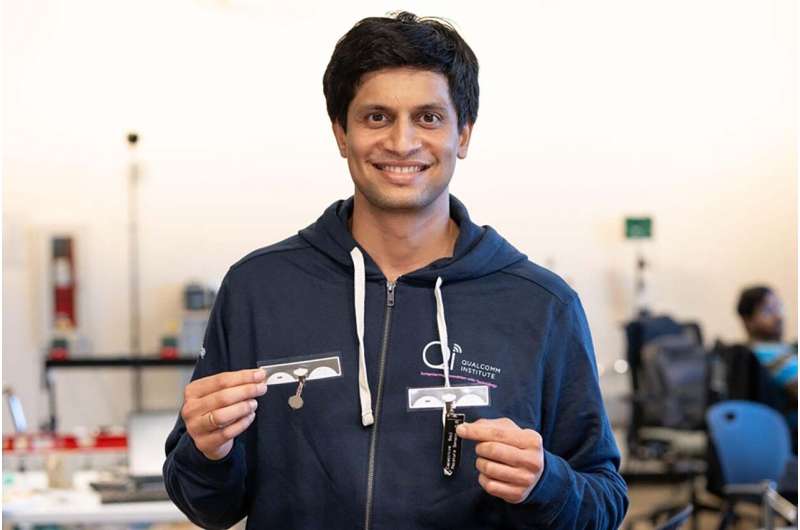This approach bypasses traditional power needs, making sensors more accessible and sustainable, this development could reshape fields from agriculture to athletics, paving the way for data-driven advancements in the IoT era.

Research from UC San Diego introduced new possibilities for passive data collection. The team have shown that data sensing can now occur without batteries or specialized equipment. They emphasized that the data will be the next decade’s ‘silicon,'” underlining how data drives advancements, especially with the growth of the Internet of Things (IoT). Traditional sensors, which are often battery-powered, struggle to provide real-time data due to energy constraints. However, Bhat and Bharadia’s research demonstrated that passive sensing is achievable using common RFID (Radio Frequency Identification) tags.
These tags, ubiquitous and affordable—costing between a few cents to a few dollars—are widely used in retail and logistics for tracking purposes. The researchers envisioned these tags as ideal tools for real-time environmental sensing, particularly in battery-free applications.The research explored analog sensing using RFID tags, where environmental stimuli directly change the tags’ voltage or current. Unlike conventional digital sensors, which depend on complex circuits and converters, this method simplifies data capture and minimizes power requirements. The team wondered whether they could repurpose RFID tags for battery-free sensing and tracking. This approach bypasses the limitations of battery-dependent sensors, making it practical to gather data continuously and efficiently.
The sensors, which use commercially available RFID technology, offer promising applications across multiple fields. For instance, in agriculture, these tags can enhance irrigation management by measuring soil moisture in real time, ensuring precise water distribution. In athletics, RFID sensors could be embedded in shoes to measure performance metrics, like jumping force, without requiring specialized facilities. Similarly, parking garages could use RFID tags to monitor occupancy, tracking spaces as cars enter and exit.Reflecting on the broader implications, they mentioned that they are at the cusp of a revolution where new sensors will be collecting the data that will power the next generation of AI. This advancement in passive, battery-free sensing could be transformative for data collection, paving the way for a future rich in accessible, real-time data.













